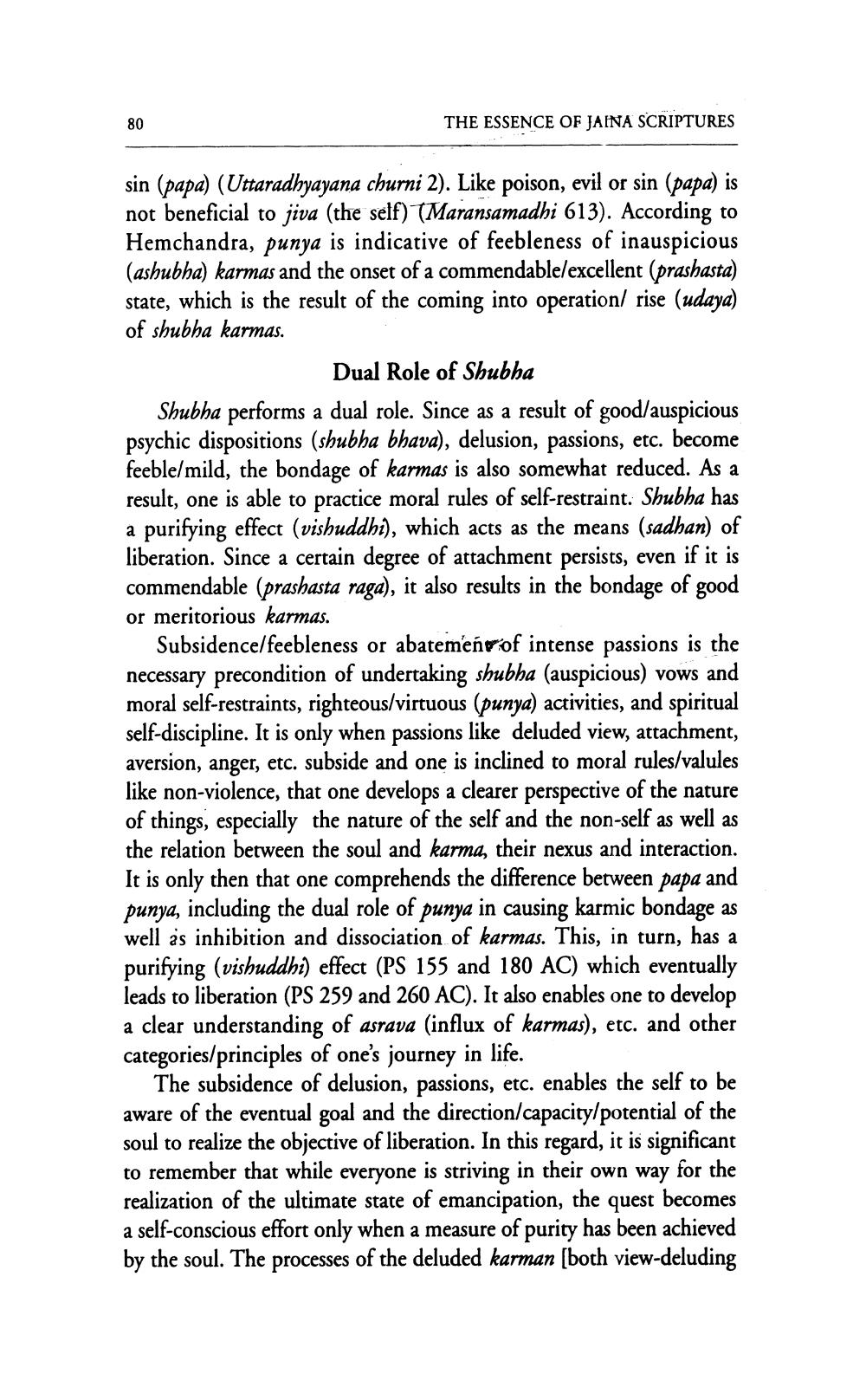________________
80
THE ESSENCE OF JAINA SCRIPTURES
sin (papa) (Uttaradhyayana churni 2). Like poison, evil or sin (papa) is not beneficial to jiva (the self) (Maransamadhi 613). According to Hemchandra, punya is indicative of feebleness of inauspicious (ashubha) karmas and the onset of a commendable/excellent (prashasta) state, which is the result of the coming into operation/ rise (udaya) of shubha karmas.
Dual Role of Shubha
Shubha performs a dual role. Since as a result of good/auspicious psychic dispositions (shubha bhava), delusion, passions, etc. become feeble/mild, the bondage of karmas is also somewhat reduced. As a result, one is able to practice moral rules of self-restraint. Shubha has a purifying effect (vishuddhi), which acts as the means (sadhan) of liberation. Since a certain degree of attachment persists, even if it is commendable (prashasta raga), it also results in the bondage of good or meritorious karmas.
Subsidence/feebleness or abatemenvof intense passions is the necessary precondition of undertaking shubha (auspicious) vows and moral self-restraints, righteous/virtuous (punya) activities, and spiritual self-discipline. It is only when passions like deluded view, attachment, aversion, anger, etc. subside and one is inclined to moral rules/valules like non-violence, that one develops a clearer perspective of the nature of things, especially the nature of the self and the non-self as well as the relation between the soul and karma, their nexus and interaction. It is only then that one comprehends the difference between papa and punya, including the dual role of punya in causing karmic bondage as well as inhibition and dissociation of karmas. This, in turn, has a purifying (vishuddhi) effect (PS 155 and 180 AC) which eventually leads to liberation (PS 259 and 260 AC). It also enables one to develop a clear understanding of asrava (influx of karmas), etc. and other categories/principles of one's journey in life.
The subsidence of delusion, passions, etc. enables the self to be aware of the eventual goal and the direction/capacity/potential of the soul to realize the objective of liberation. In this regard, it is significant to remember that while everyone is striving in their own way for the realization of the ultimate state of emancipation, the quest becomes a self-conscious effort only when a measure of purity has been achieved by the soul. The processes of the deluded karman [both view-deluding




